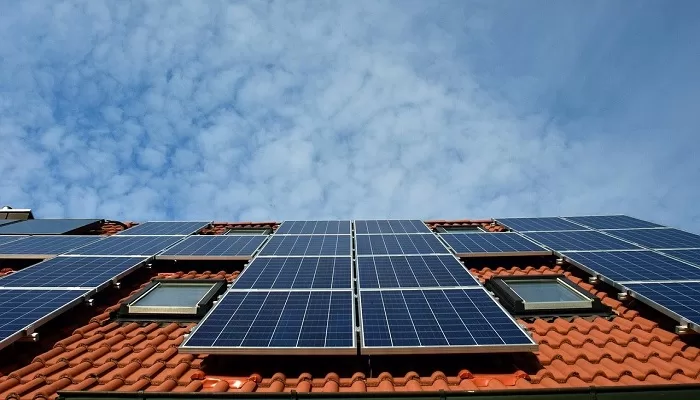Lifestyle
Residential Solar vs. Community Solar: Powering Your Home Using Solar Power

Powering your home using solar power is a popular alternative for homeowners. Solar power provides clean, renewable energy to save you money and preserve the planet.
If you’re interested in switching to solar power, understand the difference between residential solar and community solar to choose the best option for you and your home.
What is Residential Solar?
Residential solar involves installing a solar power system on your property. Understand your roof’s condition and the costs involved before installing a solar power system.
Assess your roof’s condition by analyzing the direction, size, slant, material, age, and shade of your rooftop. Roofs ideally suited for solar power systems are south facing, sturdily built, and slanted between 30-45 degrees.
Determine the ideal solar power system and the number of solar panels for your home by calculating the kilowatt-hours of power needed for covering your home’s energy usage. An average homeowner requires 28-34 solar panels, costing anywhere between $10,000 and $40,000 for equipment and installation.
The Billing Process
Residential solar uses a billing process called net metering. Net metering credits owners of solar power systems for electricity contributed to the power grid. Essentially, excess energy generated by your solar power system is delivered to the grid, and you’re paid for your extra energy through solar credits appearing on your monthly utility bill. Credits are subtracted from your total, effectively reducing your energy expenses.
Advantages and Disadvantages of Residential Solar
Residential solar offers numerous advantages for homeowners.
Owners of solar power systems receive numerous tax benefits. Primarily, the investment tax credit (ITC) benefits homeowners by allowing them to deduct 26% of the installation costs from their federal taxes. Other tax incentives and rebates exist depending on your location, so research carefully to maximize your tax benefits.
Residential solar also increases your home’s value. Solar power systems are viewed as valuable upgrades by home buyers, meaning buyers are prepared to pay more for solar-powered homes. Generally, a system boosts a home’s value by $20 for every $1 saved in yearly energy expenses.
Additionally, solar power systems provide off-grid opportunities for interested homeowners. Living off-grid requires specialized batteries for storing excess energy during the day to use at night.
Residential solar also involves many disadvantages, specifically regarding accessibility. Primarily, solar power systems are expensive investments requiring thousands of dollars for installation. Solar power systems are also unavailable options for renters or home’s lacking ideal roof conditions.
Understand the advantages and disadvantages of residential solar to choose the right option for your home.
What is Community Solar?
Community solar refers to a group of people sharing electricity generated using solar energy. Other terms for community solar include shared solar, energy sharing, and solar farms or gardens.
Community solar projects are formed by a utility company, private business, or government organization electing to install numerous solar panels in a certain area. Solar power created is delivered to the power grid and distributed by the utility company to homes and businesses. Members of the community are able to lease energy from the solar farm by simply subscribing to the service. Learn more by viewing a community solar explainer video.
The Billing Process
Community solar uses a billing system called virtual net metering. Virtual net metering operates similarly to net metering; however, the process occurs virtually because solar power systems aren’t installed on an individual’s property.
Additional energy generated by your share of solar panels is delivered to the power grid. As a member of community solar, the utility company pays you for supplied energy by adding solar credits to your monthly electric bill.
Advantages and Disadvantages of Community Solar
Community solar provides numerous advantages for members, including:
- Guaranteed Savings: Members of community solar earn a guaranteed 10% discount on electric bills, allowing easier budgeting.
- Bypass Installation Costs: Community solar projects are funded by companies or organizations, meaning you bypass expensive installation costs and upfront fees.
- Avoid Maintenance: Solar farms are maintained by the owners, successfully reducing your involvement and stress.
- Widely Accessible: Anyone is able to participate in community solar regardless of homeownership status, income, or roof condition.
Community solar also involves unfortunate disadvantages. Community solar projects aren’t available everywhere, severely limiting accessibility. Fortunately, opportunities continue to increase with shared solar projects located in 39 states. Additionally, as a community solar member, you aren’t eligible for tax incentives because you avoided paying to install and own a solar power system.
Learn the advantages and disadvantages of community solar to discover whether it’s perfect for you.
Choosing the Best Option for Powering Your Home
Residential solar and community solar provide numerous benefits for you and your home. Choose the best option for powering your home by analyzing your financial situation and opportunities, specifically regarding your home’s eligibility and available community solar projects.
Create a solar-powered home using residential or community solar to save money, improve the environment, and guarantee a better future.






















































